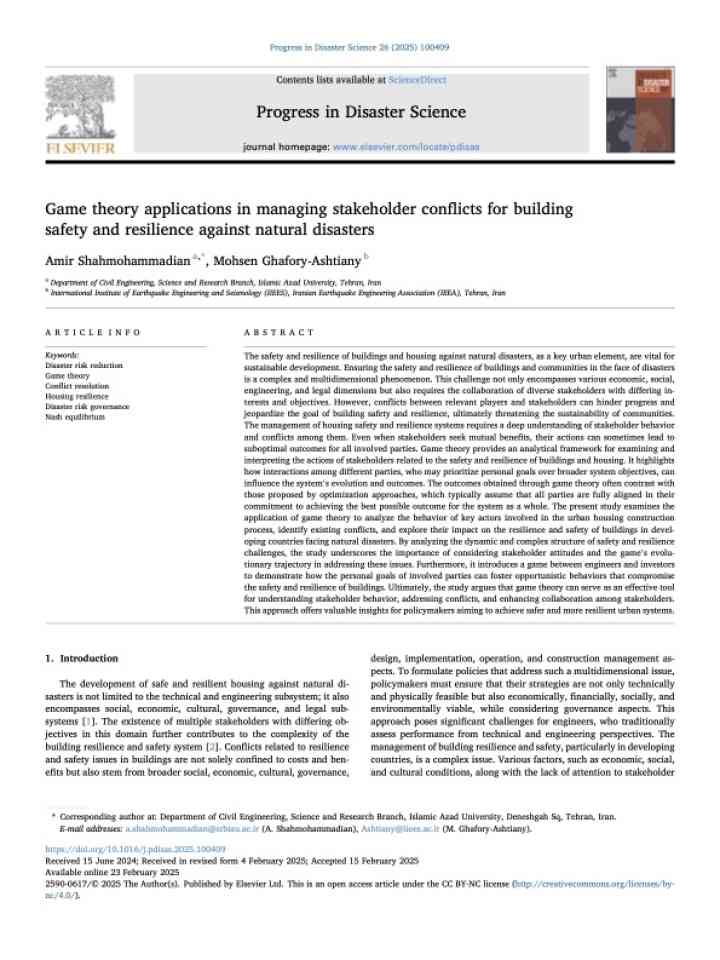Game theory applications in managing stakeholder conflicts for building safety and resilience against natural disasters
The study examines the application of game theory to analyze the behavior of key actors involved in the urban housing construction process, identify existing conflicts, and explore their impact on the resilience and safety of buildings in developing countries facing natural disasters. By analyzing the dynamic and complex structure of safety and resilience challenges, the study underscores the importance of considering stakeholder attitudes and the game's evolutionary trajectory in addressing these issues.
Furthermore, it introduces a game between engineers and investors to demonstrate how the personal goals of involved parties can foster opportunistic behaviors that compromise the safety and resilience of buildings. The study argues that game theory can serve as an effective tool for understanding stakeholder behavior, addressing conflicts, and enhancing collaboration among stakeholders. This approach offers valuable insights for policymakers aiming to achieve safer and more resilient urban systems.
Explore further
